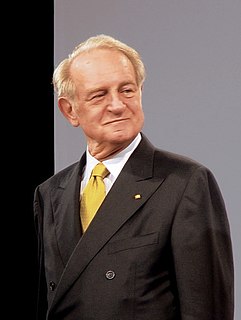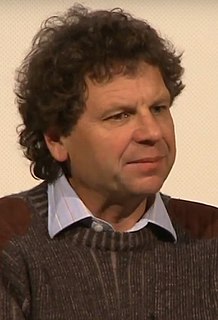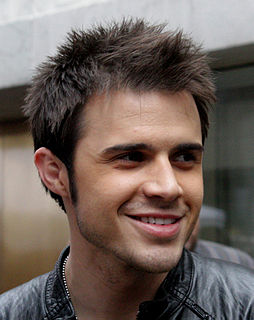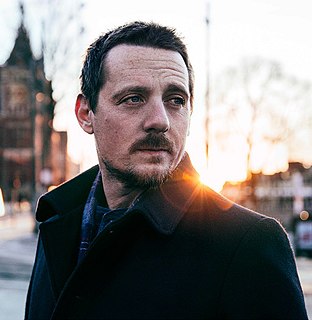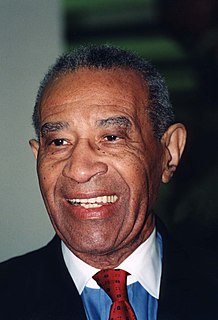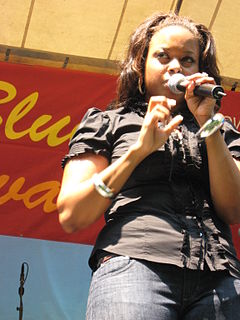A Quote by Johannes Rau
But it is equally necessary to consider the implications for a society if there are fewer and fewer young people making music because we are economising on music schools or musical education in schools.
Related Quotes
Investing intelligently in those of us who are marginalised means fewer people in jail, fewer homeless, fewer unemployed, fewer of us who are forlorn and depressed, fewer people addicted to things that drag us down... Because as we invest in those that do it tough, we will see more Australians taking pride in themselves, having realisable dreams and aspirations and making their own positive contribution to the world's greatest nation.
I'm not a believer in predetermined fates, being rewarded for one's efforts. I'm not a believer in karma. The reason why I try to be a good person is because I think it's the right thing to do. If I commit fewer bad acts there will be fewer bad acts, maybe other people will join in committing fewer bad acts, and in time there will be fewer and fewer of them.
Popular music of the last 50 years has failed to keep in step with advances in musical theater, namely Stephen Sondheim. But the two have grown apart so that popular music is based more than ever on a rhythmic grid that is irrelevant in musical theater. In popular music, words matter less and less. Especially now that it's so international, the fewer words the better. While theater music becomes more and more confined to a few blocks in midtown.
I used to take musical instruments home from elementary school. There were some music teachers there - we all learned instruments. A lot of us got started in public schools. Charlie Parker and Bud Powell, for example. But now there are no more music teachers in public elementary schools. It's like (Senator) Moynihan said, 'benign neglect.' Just let it rot and fester.
I'm an advocate of music in schools. It's important to me that music is in as many schools as possible across this country and across the world. I think that it's a lost art form because kids aren't as exposed to it as maybe they used to be, or should be. I was exposed heavily to jazz and that's why I love it.
There are contradictory tendencies in American society. There's a huge range of activities that one can engage in that mark it as a quite free society. It's also true to say that the powers that be have so much control over how people think that there are fewer and fewer people who make use of the rights and information available to them.
Regarding African education in this country, there was a time when the government took no interest whatsoever in African education. It was the churches, that part of civil society, which bought land, built schools, and employed and paid teachers. People like myself, right from grade eight up to university, I was in missionary schools.
